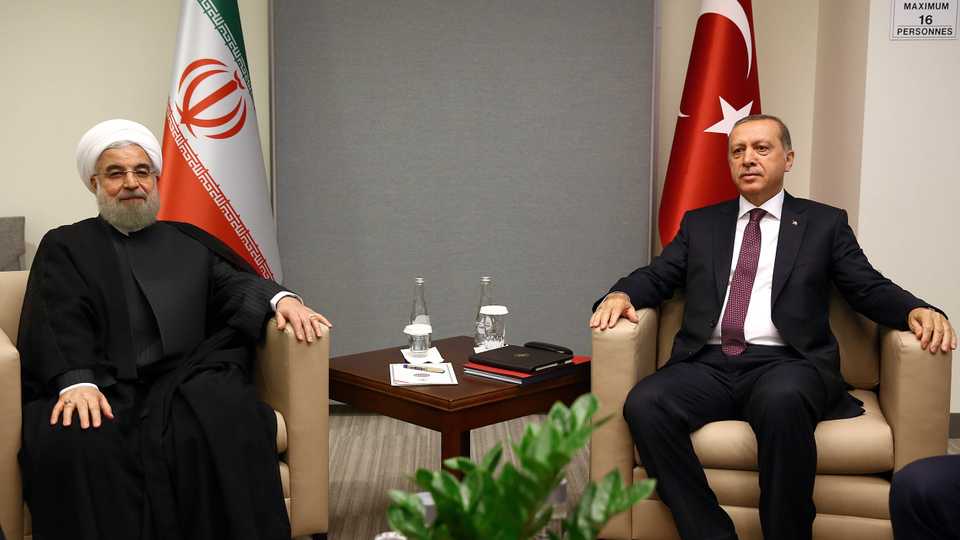
Turkish President Recep Tayyip Erdogan will meet with his Iranian counterpart Hassan Rouhani on Wednesday, a few days after the two countries’ chiefs of staff met in Tehran to discuss common security issues.
Erdogan’s trip to Iran comes a week after Russian President Vladimir Putin visited Ankara, as ties between Turkey and both Iran and Russia grow amid common regional security concerns, especially in Syria.
Much like the meeting with Putin, the referendum in the Kurdish Regional Government (KRG) in Iraq, which both countries strongly oppose; the Astana process in Syria; and combatting terrorism are likely to top the agenda.
TRT World‘s Turkey Political Correspondent Hasan Abdullah has more on the visit.
Post-referendum steps in the KRG
The independence referendum of KRG on September 25 resulted in an overwhelming “yes” vote in favour of independence, opening the door to sanctions against KRG, and joint military drills between Baghdad, Ankara and Tehran along the borders with the KRG-controlled territory.
In the days leading up to the referendum, the foreign ministers of Iran, Turkey and Iraq released a joint declaration that showed agreement on taking coordinated counter-measures to address the issues brought about by the referendum.
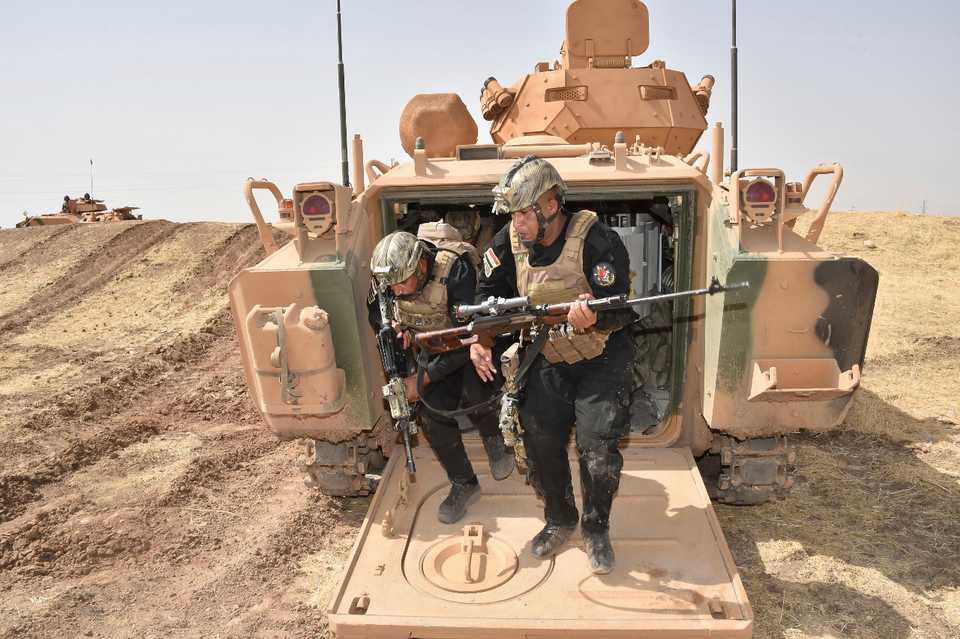
One week after the referendum on Monday, Turkish Chief of the General Staff, General Hulusi Akar, flew to Tehran to meet his counterpart as well as Iranian President Rouhani.
“As two major powers in the region, Iran and Turkey can play an effective role in creating stability and peace in the region,” said General Akar following the meeting between the two countries’ chiefs of staff.
Iranian President Rouhani also underlined the important roles played by Turkey and Iran in the region, and stressed the common goals of cooperating against terrorism and preserving geographic borders.
“Today, the political, economic and international relations of the two countries are at a good level and we should try to further strengthen military and defence cooperation,” he said after he met General Akar.
Turkey has deployed troops near its border with Iraq, and has been holding joint military drills with the Iraqi army.
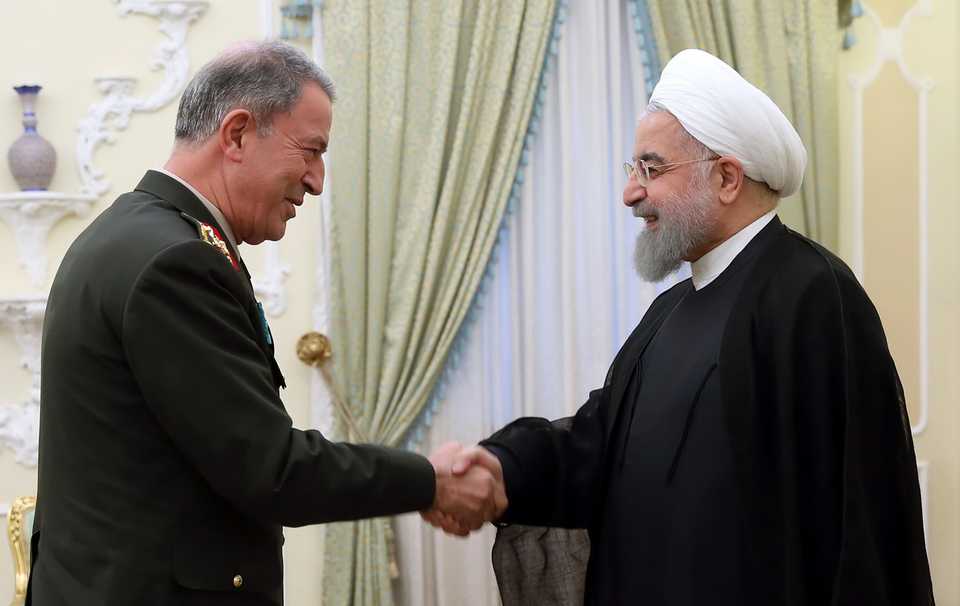
Iranian and Iraqi forces also conducted joint military exercises along their shared border starting Monday.
In addition to joint military drills, both countries followed Baghdad’s decision to halt flights to and from KRG-controlled airports.
Both countries also backed Baghdad’s decision to take back control of external border gates into northern Iraq. Iran closed its border gate with the KRG-controlled territory on the day of referendum. Turkey’s Habur border gate, which is the economic lifeline of the KRG, is still operational, but with tighter controls.
While a coordinated military response between Iran and Turkey does not seem likely, both parties are closely following developments in the semi-autonomous region and waiting for signals from Baghdad for further action.
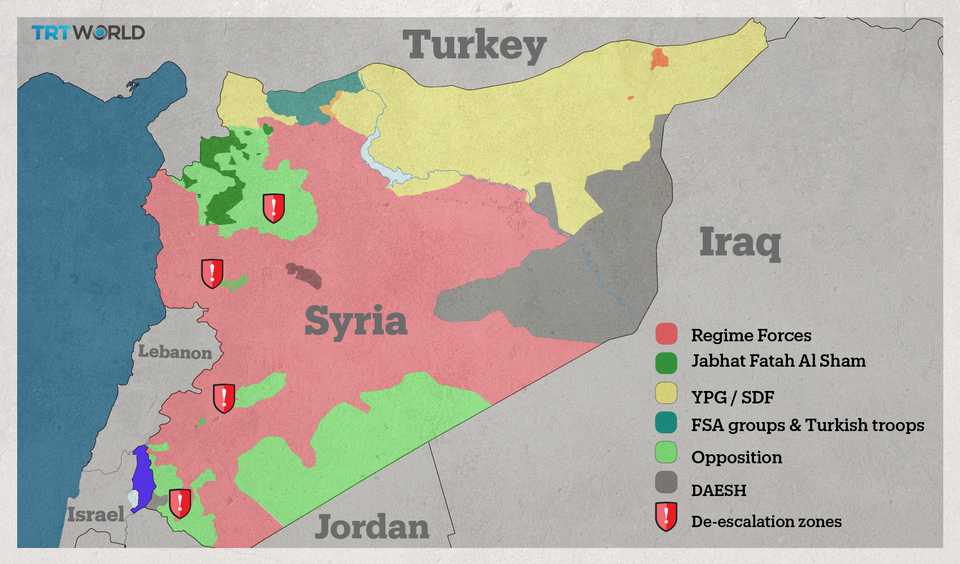
De-escalation zone in Idlib
Guarantor countries Turkey, Iran and Russia met for deliberations on establishing a fourth de-escalation zone in Idlib, Syria on September 14 in the sixth round of Astana talks.
Although de-escalation zones were established in three areas in Syria, the agreement could not be implemented in Idlib, which had been a centre of fighting between Russia and Iran-backed regime forces and Turkey-backed opposition forces until July. In July, the Al Qaeda affiliated former Nusra front, Hayat Tahrir Al Sham took control of a large part of the province.
It has strategic importance for all parties involved, and has shown little signs of de-escalation despite the talks.
On September 15, the second day of the meeting, the trio reached an agreement on the Idlib de-escalation zone.
Russia said its observers would be military policemen. Turkey joined Russia a week later saying that it would also deploy its troops inside Idlib as a part of the de-escalation agreement.
Erdogan said on September 21 that Russia would maintain security outside Idlib, in line with the agreement, and Turkey would maintain security inside Idlib region.
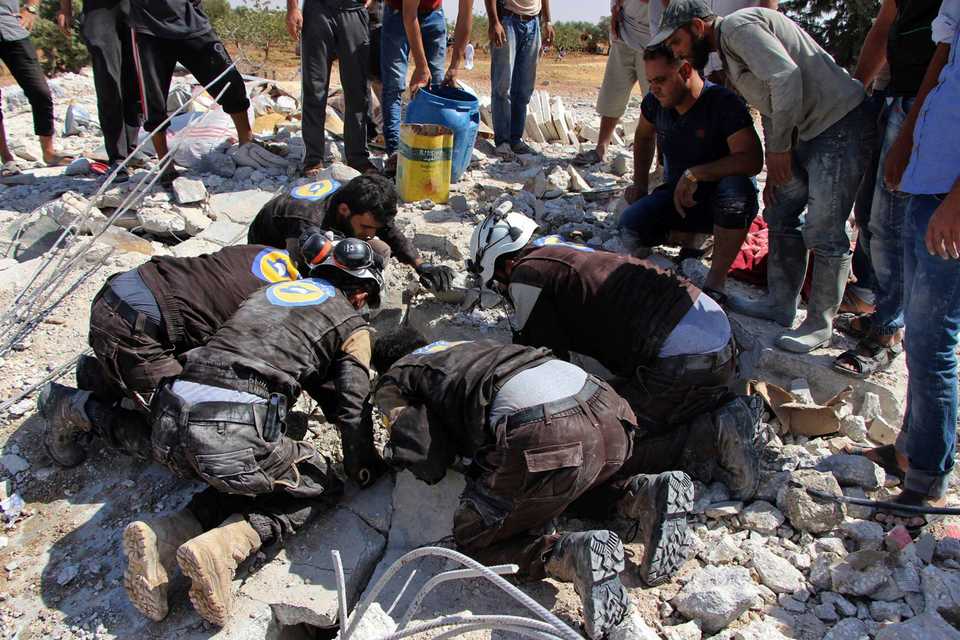
“It is of utmost importance that the decisions taken in Astana are implemented. Idlib is very important … Our main concern is finding a permanent solution, and this is what we are striving for in Idlib,” said Turkey’s Foreign Minister Mevlut Cavusoglu in an interview regarding Turkey’s current security concerns.
Sources from Turkey-backed opposition in Idlib, who talked to TRT World on condition of anonymity said Iranian observers will be positioned along the southern borders of Idlib to create a practical buffer zone between Syrian regime forces and opposition forces.
The details of the agreement and timing of the implementation are yet to be discussed. These issues, which were among the leading topics during Putin’s visit to Ankara, will also be key points of discussion during Erdogan’s visit to Tehran.
Combatting terrorism
Turkey and Iran were on opposing sides in the first five years of the Syrian war, but as the US-backed YPG/PYD gained ground in northern Syria, they have started working together more closely.
Turkey considers the YPG to be the Syrian branch of the PKK, which is considered a terrorist organisation by Turkey, the US, and the EU. The PKK has been fighting the Turkish state for decades, resulting in more than 30,000 killed, including civilians.
Iran also struggles with the PKK-linked separatist PJAK in its own territory.
The common threat of the PKK/PYD/PJAK has pushed Turkey and Iran to pursue coordinated action in Syria and the KRG.
Vice Director of the Center for Iranian Studies in Ankara (IRAM), Hakki Uygur, points to the YPG/PYD gaining ground in Syria as the focal point of the growing partnership between Iran and Turkey.
“The Turkish priority right now is the PKK and PYD. Iran also has some troubles with the PKK and other terrorist groups … Turkey is looking for regional powers to cooperate [with],” said Uygur.
Disagreements over Iraq and Syria
Turkey and Iran had significant disagreements over policies in Syria and Iraq, until their recent rapprochement over common security issues.
In Syria, Turkey backs opposition-forces, while Iran backs regime forces alongside Russia.
Turkey has accused Iran of expansionism and fueling ethnic and sectarian strife in Syria and Iraq.
Erdogan has said Iran was pursuing a racist policy of “Persian nationalism,” and wanted a divided Iraq and Syria.
Iran responded by saying that its patience “had limits.”
“We hope that such statements are not made again. If our Turkish friends continue with this attitude we will not remain silent,” Iran’s foreign ministry spokesperson Bahram Ghassemi said.
In an April 2017 interview with Al Jazeera, Erdogan also described the Iran-backed Iraqi paramilitary organization Hashd Al Shaabi as a “terrorist” entity.
But with the referendum move by the KRG and US support for PYD in Syria, Iran and Turkey are now committed to cooperating.










Discussion about this post